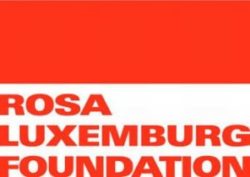Background
Since 2015, more than one million people have risked their lives crossing the Mediterranean Sea to the coastlines of Greece and Turkey. At present, there are still more than 60,000 refugees stranded in Greece and more than three million in Turkey, of which nearly half are children.
From the start of the current mass migration, refugees have to live under disastrous humanitarian conditions. Last winter was the second in which an alarming number of people had to survive in inadequate camps of tents - highlighting the failure to address this humanitarian crisis with European competency. Binding agreements, such as the Relocation Program and the Reunification of Separated Families Program, are only partly implemented and connected to long administrative processes. Basic humanitarian care for refugees in Turkey and Greece is mainly provided by private initiatives and small NGOs that receive little or no support from the EU or local governments.
Together with representatives of the civil society, the public and the political sphere, strategies and action plans will be developed. Participants are invited to inform themselves about the current refugee situation and receive up to date and first-hand factual information.
Mission
Up to 200 representatives from voluntary organizations working with migrants and refugees, representatives of European politics, journalists as well as concerned and interested individuals will meet in Berlin to make a difference.
⦁ Information & Exchange
We aim to provide an opportunity for delegates to get up to date on the current refugee situation by facilitating an open exchange between organisations on site in Greece and Turkey, German initiatives and political representatives.
⦁ Political Empowerment
For the first time, delegates will be able to jointly express and position themselves as an independent political player.
⦁ Networking & Coordination
We aim to create a networking platform for Greek, Turkish and German volunteers to interact with opinion formers and politicians. To help develop a pan-European framework allowing the implementation of a coherent action plan. Also, we aim to develop a strategy that will enable further effective coordination of Greek, Turkish and German efforts.
⦁ Call to Action & Special Issue Conference Newspaper
We aim to publish a Special Issue Conference Newspaper to document demands and suggestions of the participants. The paper will be sent to relevant influencers, academics and researchers, European politicians and the media.
Organizers
The vision for the conference is being developed by a small group of volunteers, dedicated to give a platform to those who are helping refugees in Greece and Turkey. The ConAction Team welcomes you to Berlin.
The Conference is organised by Joliba Interkulturelles Netzwerk e.V.
in cooperation with Bildungswerk Berlin of the Heinrich-Böll-Foundation
and the Rosa-Luxemburg Foundation.
How did you come up with the idea of the conference?
Dagmar:
When I was in Greece in 2016, I listened to the experiences of refugee volunteers who either lived in Greece and continued to help, or who had travelled there to do so from many different countries. I was amazed by their compassion, resourcefulness, resilience, creativity, continuity and lack of naivety.
I was outraged, standing at the edge of Europe on a beach on Lesvos, looking north, feeling in every cell of my body the lack of help provided by European governments and by major aid organisations.
I was shocked about the lack of media coverage, which by 2016, seemed to have forgotten to shine a spotlight on the plight of the refugees in Greece and Turkey as well as ignoring a whole movement of European Civil Society who continued to help and had organised themselves silently - and as it seemed only known to those who had taken the effort to find out themselves what was still going on. A whole system of international grassroot NGOs had been established with all the difficulties ( and the freedom ) that volunteer work consists of without much support from the existing society structure.
I watched what was going on, and what my contribution could be. I wanted to give the helpers a chance to meet and talk – not just to me and others who came, but more to each other and to the world as a whole. I wanted to give them their deserved chance to send a combined message to the world, to cooperate on an international level, to honour and acknowledge their work and to hope the media and politicians would listen better if more than one voice spoke up.
I wanted to provide a platform so that people from different countries could actually meet and speak with others who also refused to be silent.

JOLIBA Interkulturelles Netzwerk in Berlin e.V. is a non-for-profit organisation that was founded in 1997. Joliba’s objective is to initiate and implement projects that promote intercultural coexistence and understanding.

The Bildungswerk Berlin is part of the Heinrich-Böll-Stiftung and a catalyst for green visions and projects. It is furthermore a think tank for policy reform and an international network with a mission to foster democracy and human rights.

